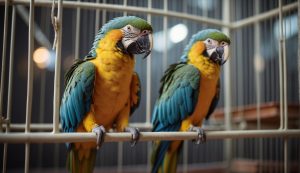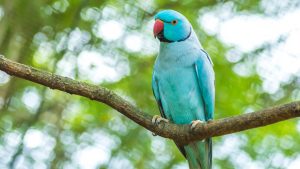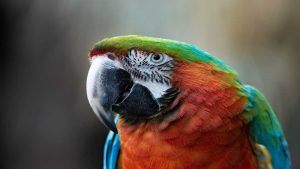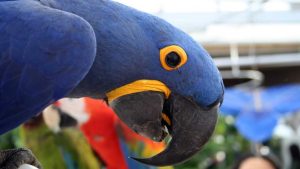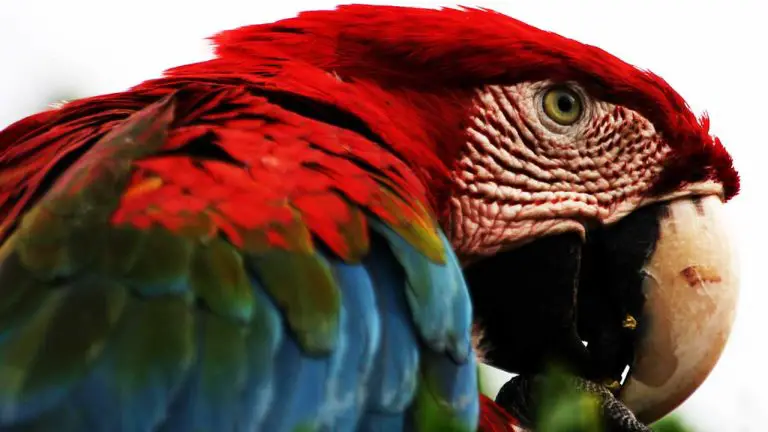How Much are Quaker Parrots? A Comprehensive Guide
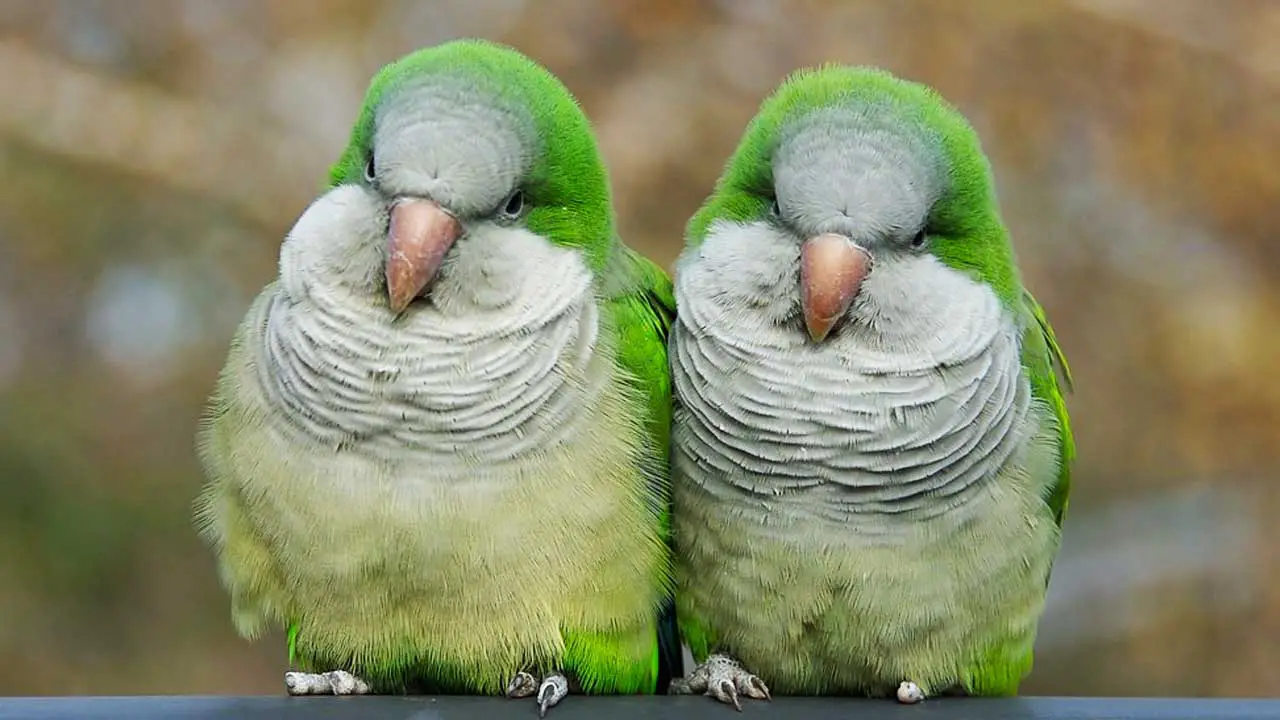
As someone who has worked with quaker parrots, I know firsthand that these birds are a popular choice for bird lovers. They are known for their playful personalities, intelligence, and ability to mimic human speech. However, one question that many people have when considering a quaker parrot as a pet is how much they cost.
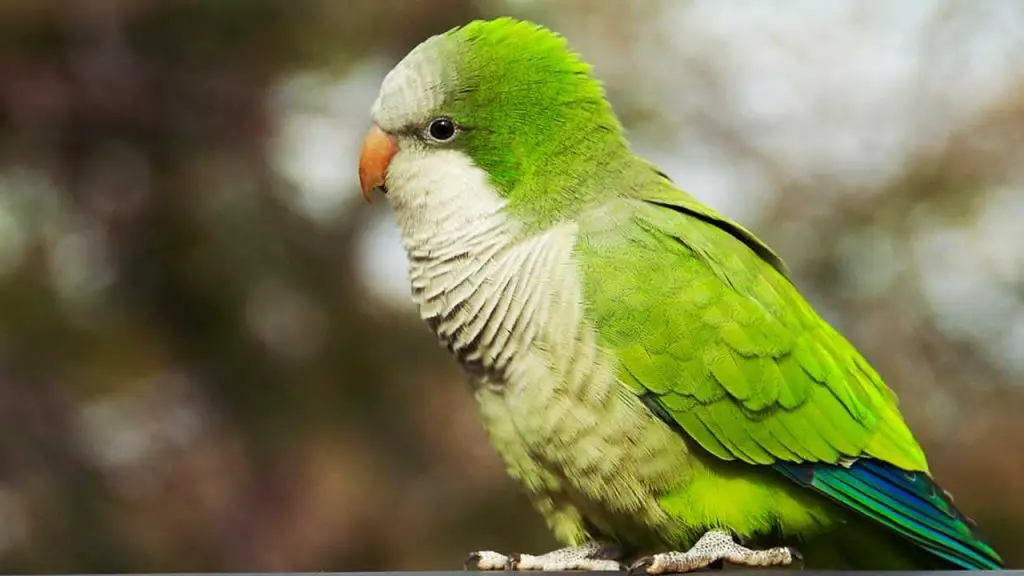
Quick Summary
The answer to this question depends on several factors, such as where you live, whether you adopt from a breeder or a shelter, and the age and health of the bird.
Generally speaking, quaker parrots can cost anywhere from $250 to $550, with the price being higher for birds from reputable breeders.
It’s important to keep in mind that the initial cost of purchasing a quaker parrot is just the beginning, as these birds require ongoing care and attention
Table of Contents
A Little About Quaker Parrots

As someone who has worked with quaker parrots, I can attest to the fact that they are a popular parrot species.
Quaker parrots are also known as quaker parakeets, monk parakeets, green parakeets, and gray-breasted parakeets.
They are native to South America, particularly Argentina, Bolivia, Brazil, and Paraguay.
Quaker parrots are small to medium-sized birds that can grow up to 12 inches from beak to tail and weigh between 4 and 5 ounces.
They have a lifespan of 20 to 30 years in captivity, some even longer. They are known for their social, playful, and curious nature, which makes them great pets for those who want a companion bird.
One thing to note about quaker parrots is that they are illegal to own or sell in some states in the U.S. due to their classification as an invasive species.
However, they are legal in most states as long as they are captive-bred and not taken from the wild.
When it comes to the cost of quaker parrots, it can vary depending on several factors. The initial cost to adopt a quaker parrot can range from $250 to $550, depending on how it was raised and the popularity of the breeder.
Other costs to consider include the cost of the habitat, habitat cover, food, treats, habitat substrate, and food/water dishes.
Vet costs can also add up, with most parrot visits costing between $30-$150. If your quaker has a health problem and needs medication, expect to pay $10-$60 per medication.
To sum up, quaker parrots are a popular parrot species known for their social, playful, and curious nature. They can make great pets for those who want a companion bird. However, it’s important to note that they are illegal to own or sell in some states in the U.S. due to their classification as an invasive species.
The initial cost to adopt a quaker parrot can range from $250 to $550, and other costs to consider include the cost of the habitat, food, treats, and vet costs.

Quaker Parrot Characteristics
Their Personality
As someone who has worked with Quaker parrots, I can confidently say that they are intelligent and make good pets.
They are excellent pets for those who want a social, confident, and friendly bird that is affectionate and playful.
Quaker parrots are known for their chatty and talkative nature, and they are excellent talkers. They are also vocal birds that can make a lot of noise, which may not be suitable for everyone.
Appearance
Quaker parrots are small to medium-sized birds that have a distinctive coloration. They are usually green with a gray breast and forehead.
However, there is also a blue mutation of Quaker parrots that has blue flight feathers. Quaker parrots are monomorphic, which means that males and females look alike. They have a stocky build and a short tail.
Vocalization
Quaker parrots are known for their vocalization, and they are sometimes referred to as “quaking” birds because of the way they move their heads and bodies when they talk. They are chatty birds that can talk for hours, and they are excellent at mimicking human speech. They are also good at imitating sounds and noises, such as the ringing of a phone or the sound of a microwave.
In summary, Quaker parrots are intelligent, social, and friendly birds that make excellent pets for those who want an affectionate and playful companion. They have a distinctive coloration and are known for their chatty and talkative nature. However, they can be vocal and noisy, which may not be suitable for everyone.
Housing and Care for a Quaker Parrot
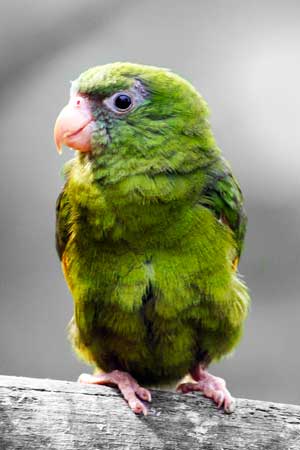
As a former quaker parrot owner, I know that providing adequate housing and care for these birds is crucial for their health and happiness.
In this section, I will cover some of the most important aspects of quaker parrot care, including their cage and enclosure, diet and nutrition, health and grooming, and toys and supplies.
Cage and Enclosure
Quaker parrots need a fairly large cage that provides enough space for them to move around and play. I personally recommend a minimum cage size of 25x25x25 inches, but larger is always better.
The cage should have several perches of varying sizes, as well as twigs and ladders for climbing. It’s also important to provide your bird with plenty of toys and puzzle toys to keep them mentally stimulated.
When it comes to choosing a location for your bird’s cage, avoid placing it in direct sunlight or near any drafts. The cage should be kept in a quiet area of your home, away from any noisy appliances or other pets.
Diet and Nutrition
A healthy diet is essential for your quaker parrot’s well-being. Their diet should consist of a variety of fresh fruits, vegetables, nuts, and a seed-based diet. Sunflower seeds should be given in moderation, as they can contribute to fatty liver disease if given in excess. It’s also important to provide your bird with fresh water daily.
Health and Grooming
Quaker parrots require regular veterinary care to maintain their health. Annual check-ups are recommended, and you should take your bird to the vet immediately if you notice any signs of illness or injury. Regular grooming is also important, including trimming your bird’s nails and wings as needed.
It’s also important to keep your bird’s cage clean and free of pests. Regularly clean the cage and replace any soiled bedding or toys.
Toys and Supplies
Quaker parrots are intelligent and playful birds that require plenty of toys and supplies to keep them entertained. Puzzle toys are especially beneficial, as they help to stimulate your bird’s mind and prevent boredom. You should also provide your bird with plenty of perches, twigs, and ladders for climbing and exercise.
In addition to toys, you will also need to purchase supplies such as parrot food, travel cages, and grooming supplies. It’s important to choose high-quality products that are safe for your bird and meet their specific needs.
Overall, providing proper housing and care for your quaker parrot is essential for their health and happiness. By following these guidelines, you can help ensure that your bird lives a long and healthy life.
Breeding and Adoption of Quaker Parrots
Breeding
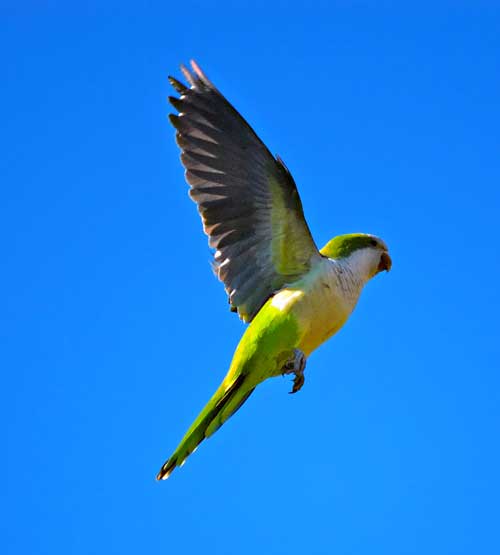
Breeding quaker parrots can be a rewarding experience, but it requires a lot of time and effort. It’s important to note that in some states, it is illegal to breed quaker parrots without a permit. Before deciding to breed quaker parrots, it’s important to do your research and make sure you are following all legal requirements.
When it comes to breeding quaker parrots, it’s important to have a pair that is compatible. Quaker parrots are monomorphic, which means it’s difficult to tell the gender just by looking at them. Experienced breeders can determine the gender of a quaker parrot by either DNA testing or through behavior and physical characteristics.
Once you have a compatible pair, it’s important to provide them with a suitable nest. Quaker parrots prefer to nest in a box that is at least 12x12x12 inches in size. The nest should have a concave bottom to prevent the eggs from rolling out.
Adoption
Adopting a quaker parrot can be a great option for those who are not interested in breeding or who want to give a bird a second chance. When adopting a quaker parrot, it’s important to find a reputable adoption agency or pet store.
Adoption fees for quaker parrots can vary depending on the age, gender, and location. On average, adoption fees can range from $250 to $550. It’s important to note that adopting a quaker parrot can be more cost-effective than buying one from a breeder.
When adopting a quaker parrot, it’s important to make sure you have the proper supplies and environment to care for the bird.
Quaker parrots require a cage that is at least 25x25x25 inches in size, as well as perches and toys to keep them entertained.
In summary, breeding and adoption are two ways to obtain a quaker parrot. Breeding requires a lot of time and effort, as well as following legal requirements. Adoption can be a great option for those who want to give a bird a second chance. It’s important to make sure you have the proper supplies and environment to care for a quaker parrot, whether you decide to breed or adopt.
Behavior and Training
As someone who has worked with Quaker Parrots, I can attest that they are social and attention-loving birds. They thrive on interaction and love to be around people. However, they can be territorial and aggressive towards other birds, especially during breeding season.
Socialization
It is important to socialize your Quaker Parrot from a young age to ensure they develop a friendly and outgoing personality. Spend time with your bird every day, talking to them and offering treats. Allow them to explore their environment and interact with other people and pets in the household.
Training and Tricks
Quaker Parrots are intelligent and can be trained to perform a variety of tricks, such as waving, fetching, and even talking. Training should begin with simple commands, such as “step up” and “step down,” and gradually progress to more complex behaviors. Positive reinforcement, such as treats and praise, should be used to encourage good behavior.
Behavioral Issues
Quaker Parrots can be destructive if they become bored or do not receive enough attention. Provide them with plenty of toys and rotate them regularly to keep them engaged. If your bird becomes aggressive or depressed, it is important to seek professional help from a veterinarian or bird behaviorist.
In summary, Quaker Parrots are entertaining and loving birds that require socialization, training, and attention to thrive. However, they can be territorial, aggressive, and destructive if their needs are not met. With proper care and training, Quaker Parrots can make wonderful pets.

